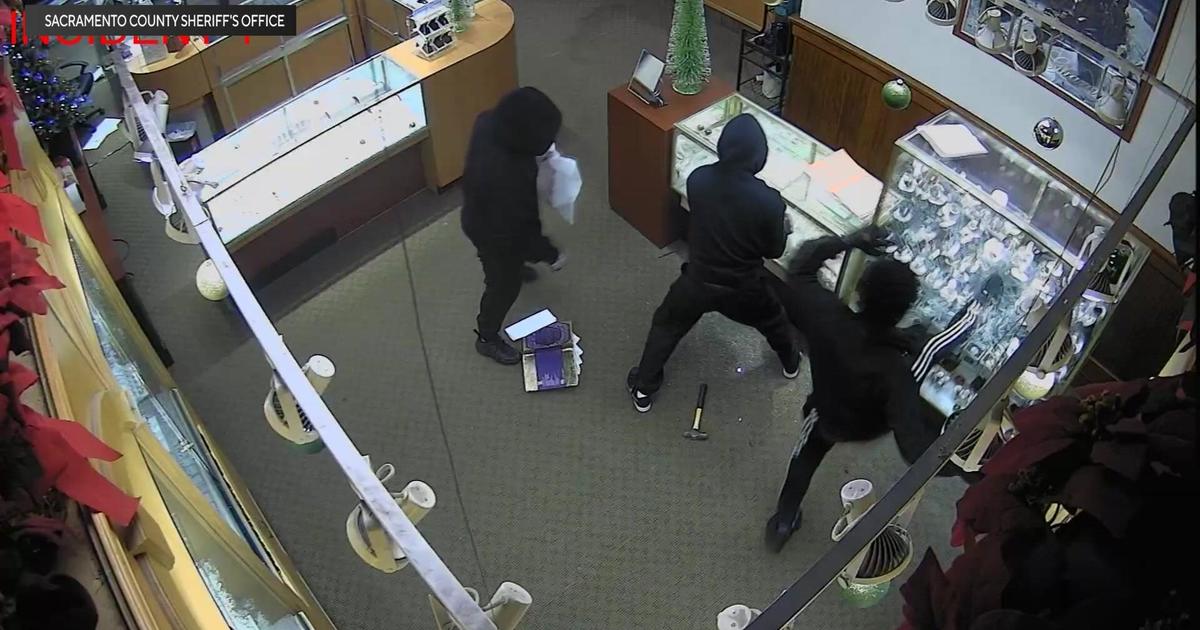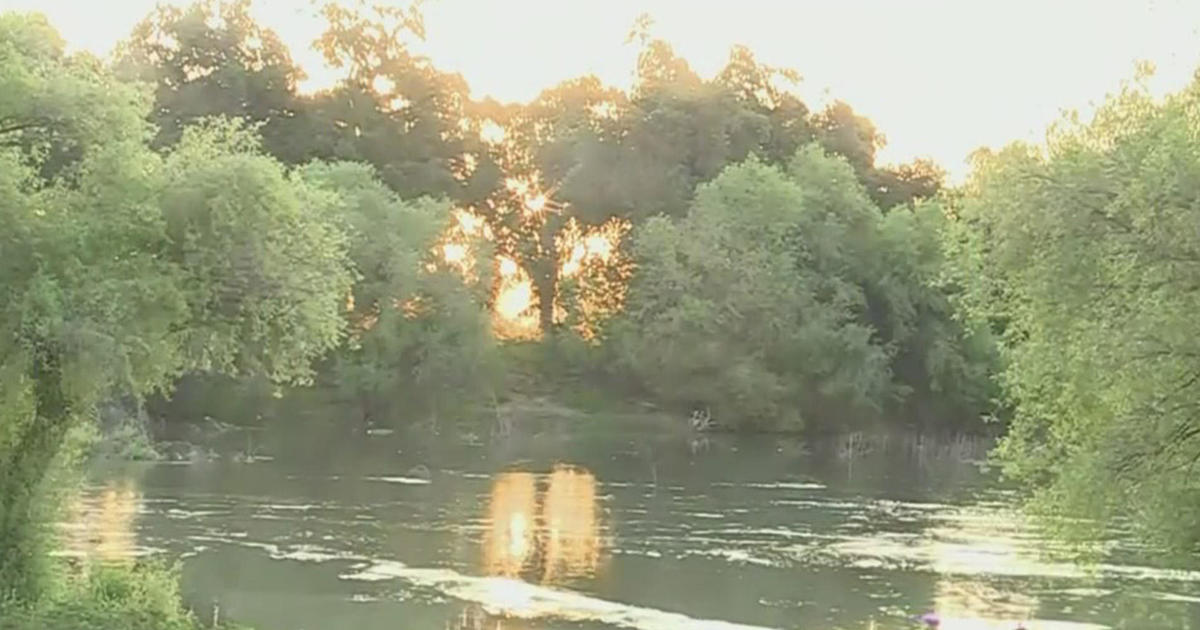Kristin Smart murder trial COVID-19 outbreak prompts court health and safety reminders
SALINAS -- Three participants involved in the Kristin Smart murder trial tested positive for COVID-19 this week and under California Department of Public Health and CalOSHA standards the positive cases constitute an outbreak, which requires anyone who has been in the courtroom this week to self-monitor and test over the weekend.
The announcement was made via email by the Monterey County Courts spokesperson who said there is no indication of any COVID transmission between any people in the courtroom.
The reminder from the courts to media and public participants in the trial comes on Thursday during the fourth week of the murder trial for Cal Poly freshman and Stockton native, Smart.
Paul Flores and his father, Ruben, are charged in connection with Smart's disappearance. Their cases are being heard together, but tried separately. Thursday marked the first time only one jury was required to be in the courtroom for the day's proceedings, which meant only Paul's jury and attorneys were present.
The morning started with William 'Bill' Hanley, the former San Luis Obispo County chief investigator, on the witness stand. Hanley retired in 2018 after he spent more than 30 years with the DA's office.
Hanley was contacted by Cal Poly police about Smart's disappearance on May 31st, 1996, and by the afternoon he called Paul Flores for an interview at the police station. He advised Flores at this time that he was a witness because they believed that Flores was the last person to see Smart alive and "we'd like to talk to him about it."
Hanley and Larry Hobson, his partner, called Flores' dorm room, because the police station was noisy, and began to ask Flores about Memorial Day weekend, when Smart disappeared.
On Friday night, Flores told them he went to Santa Lucia Hall and played pool, then had dinner on campus. Flores said he had two beers in his room and then walked to his sister's house near campus. Eventually, he would end up at the off-campus party where, he said, Smart introduced herself as, "Roxy."
Hanley said he asked Flores if he was attracted to Smart, Flores said he "doesn't like those type of girls" and said at the party the only contact the two shared was an introduction. When asked about physical contact at the party between Flores and Smart, Hanley said Flores denied any contact, besides the introduction.
The story contradicts other witness testimony, already introduced in this trial, that some students at the party heard a commotion and saw Smart and Flores on the floor, as if they'd fallen over.
Hanley asked Flores about the walk back towards the dorms. Flores, he said, did not mention Tim Davis (a student who helped Smart off the grass after the party and would later describe her as intoxicated, unable to walk on her own) and Flores also did not mention Smart had trouble walking, Hanley said.
Hanley noted Flores said he knew they were walking towards the dorms, but did not specify how he knew that fact. On the walk towards the dorms, Flores told investigators he "rubbed her shoulders to warm her up... once or twice."
"He told me it was not sexual in nature at all," said Hanley, and again Flores made a point her was not attracted to Smart.
The interview continued, as Hanley and Hobson asked Flores about play-by-play details of his weekend. They ask about his interaction with Cheryl Anderson, another student who walked from the off-campus party towards the dorms with Smart and Davis before Flores joined them, "out of nowhere," she would note in her testimony and in other interviews over the years.
As the interview progresses, Hanley would ask Flores what he believed happened to Smart. Flores told investigators he thought she "went off with somebody" and he believed she was dead. No one else interviewed, according to Hanley, would suggest Smart was dead. This answer to a question asked by investigators.
Later, the court would learn that Hanley and Hobson asked Flores to theorize about what happened to Smart, he did not offer this information unprompted, but was asked to say what could have happened.
This would not be the last time Flores spoke to investigators about Smart's disappearance. Hanley interviewed Flores again in June 1996 and it focused on "falsehoods" and "inconsistencies" in what he said. This time, Hanley said, the interrogation was conducted in a "structured-type environment."
Jurors watched this interview video in court Thursday. Chris Lambert, the creator of "Your Own Backyard Podcast" credited with reigniting public interest in the case, noted this interview is not available to view anywhere and has not been released to the public.
During the June 1996 interrogation, Flores said that Smart would sometimes lean into him for support, but he was not attracted to her and at the party, he added, the only interaction they shared was the introduction.
He says in this interview he doesn't remember Smart having difficulties walking and that she walked on her own alongside him.
"I don't remember her stumbling or anything," Flores said.
Investigators move on to address Flores' black eye that, in June 1996, said he lied when he said he got it at a basketball game but said it's a "little white lie." Instead, he said, he got the black eye while he removed the stereo system and hit his head on the steering wheel. Originally, Flores said he did not know where he got the black eye at all.
As for what Flores believed happened to Smart, in the June interview, he tells investigators: "My best guess is she went off with someone." This, again, an answer to a question asked by investigators, Flores did not share this information unprompted.
During cross-examination, Robert Sanger, Flores' attorney, asked Hanley about where the investigation stood in June 1996. He asked if Flores, by this time, was the "main focus" of this case. Hanley: "Yes, he was."
Sanger goes back during his cross-examination and lists some of the things, he said, Flores told the truth about during the interviews discussed in court Thursday.
Sanger: "Paul Flores did not confess to one crime that you were trying to get him to confess to."
Hanley agreed.
Sanger said, at this point, there was a good "buzz" around campus about Smart. Hanley responded that there was "concern" for Smart.
"It was pretty well known that Paul Flores was last to see Smart," said Sanger.
"The first time I heard Paul Flores' name was when Cal Poly police called me on the 31st," said Hanley.
The back and forth with Hanley continued into Thursday afternoon. Both juries will be back in the Salinas courtroom Friday at 8:30 a.m.
Nicolás Viñuela is a CBS contributor to this post and is a general assignment reporter for the Mustang Daily News.






